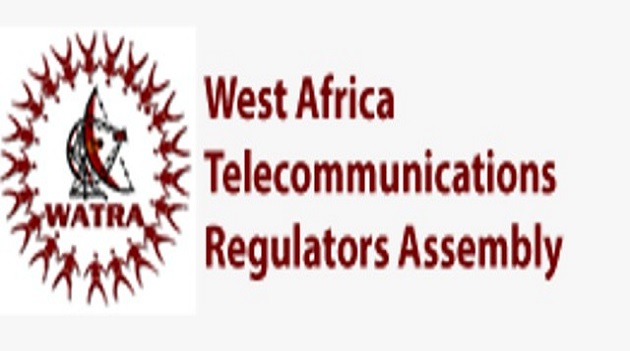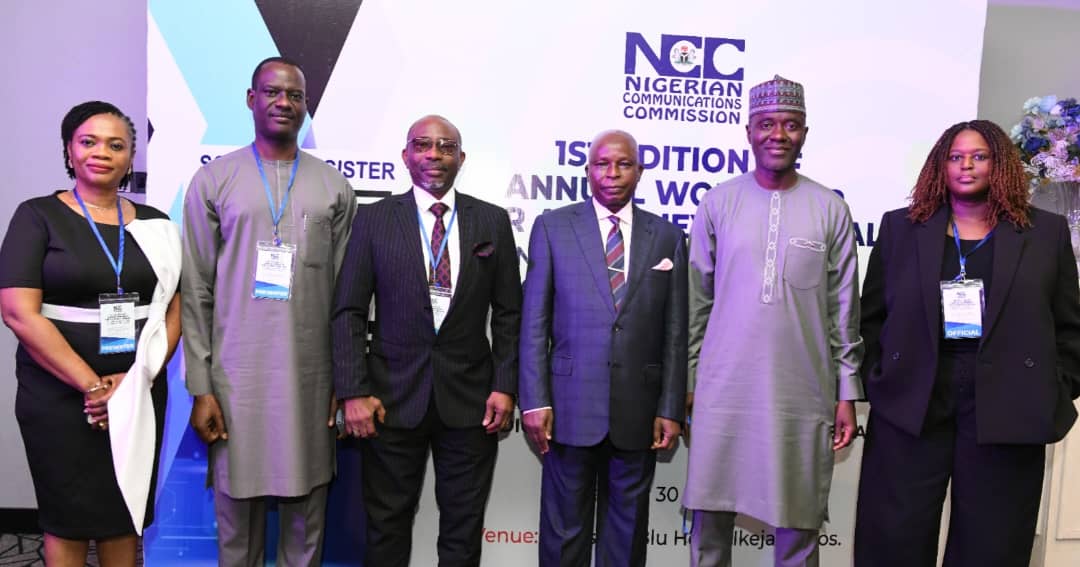Telecom
IT Teams in Nigeria Boosted Security Skills Amid Cyberattacks During COVID-19- Sophos Survey Shows

The result of recent survey by Sophos, a global leader in next-generation cybersecurity, tagged “The IT Security Team: 2021 and Beyond,” shows how increased security challenges during the pandemic offered IT teams a unique opportunity to build their cybersecurity expertise.

The vast majority of IT teams in Nigeria that faced a rise in cyberattacks (87%) and a heavier security workload (91%) over the course of 2020 strengthened their security skills and knowledge.
The report noted that despite the challenges created by the pandemic, 52% of the IT teams surveyed globally, said team morale increased during 2020.
The increase in cyberattacks during the pandemic impacted IT security skills across all industry sectors covered in the survey, including, at a global level, education (83%), retail (85%) and healthcare (80%).
The survey polled 5,400 IT decision makers in mid-sized organizations in 30 countries across Europe, the Americas, Asia-Pacific and Central Asia, the Middle East, and Africa.
Chester Wisniewski, principal research scientist, Sophos, said: “Around the world, 2020 was an unprecedented year for IT teams.
“IT professionals played a vital role in helping organizations to keep going despite the restrictions and limitations necessitated by COVID-19.
“Among other things, they enabled education institutions to move learning online, retailers to switch to online transactions, healthcare organizations to deliver digital services and care under incredibly tough circumstances, and ensured public entities could continue to provide essential services.
“Much of this will have been done at high speed, with limited equipment and resources available and while facing a rising tide of cyberattacks against the network, endpoints and employees. To say things were probably pretty stressful for most IT teams is an understatement.
“However, the survey shows that in many cases these challenges have created not just more highly skilled, but more motivated IT teams, ready to embrace an ambitious future. As a growing number of countries are able to start planning for life beyond pandemic restrictions, we have an excellent opportunity to implement new IT and security policies, adopt more secure modern tools to manage employees and operations beyond the IT perimeter, build expert teams that blend in-house and out-sourced talent, and introduce security platforms that combine intelligent automation with human threat hunting expertise. There is no going back. The future may be just as unprecedented as the past.”
The main findings of “The IT Security Team: 2021 and Beyond” global survey for Nigeria include:
· Demands on IT teams increased as technology became the key enabler for dispersed and digital organizations. Overall IT workload (excluding security) increased for 66% of IT teams, while 69% experienced an increase in cybersecurity workload
· Adversaries were quick to take advantage of the opportunities presented by the pandemic: 60% of IT teams overall reported an increase in the number of cyberattacks targeting their organization over the course of 2020
· The overall experience of 2020 enabled 82% of IT teams to build their cybersecurity skills and knowledge. It is likely that much of this professional development will have been informal on-the-job learning, acquired as teams tackled new technology and security demands, often under intense pressure and remote from their normal place of work

· Facing challenges together boosted team morale. IT team morale also improved for many teams. More than half (59%) of the IT teams surveyed said team morale increased over the course of 2020. Morale is also likely influenced by external and personal circumstances during the pandemic, such as local lockdowns, the inability to see family and other factors. Regardless, the findings suggest that a shared purpose, a sense of value and facing adversity together helped to bond and lift the spirits of IT teams
· The experiences of 2020 have fuelled ambitions for bigger IT teams and using advanced tools such as artificial intelligence (AI) in future technology strategies. Many organizations appear to have entered 2021 with plans to increase the size of both in-house and outsourced IT teams, and to embrace the potential of advanced tools and technologies. The survey found that 72% of IT teams anticipate an increase in in-house IT security staff by 2023, and 51% expect the number of outsourced IT security staff to grow over the same time frame. An overwhelming majority (94%) expect AI to help deal with the growing number of attacks and 93% with the complexity of attacks. This could be due in part to the fact that 47% of IT teams believe that cyberattacks are now too advanced for the in-house team to tackle on their own
The “IT Security Team: 2021 and Beyond” survey report is available in full on Sophos.com.
The IT Security Team: 2021 and Beyond survey was conducted by Vanson Bourne, an independent specialist in market research, in January and February 2021. The survey interviewed 5,400 IT decision makers in 30 countries, in the US, Canada, Brazil, Chile, Colombia, Mexico, Austria, France, Germany, the UK, Italy, the Netherlands, Belgium, Spain, Sweden, Switzerland, Poland, the Czech Republic, Turkey, Israel, UAE, Saudi Arabia, India, Nigeria, South Africa, Australia, Japan, Singapore, Malaysia, and the Philippines. All respondents were from organizations with between 100 and 5,000 employees.
Telecom
NIMC Migrates Telcos to NINAUTH Platform

National Identity Management Commission (NIMC) has announced the successful migration of all Telecommunications firms to the new National Identification Number (NIN) verification platform (NINAuth).

According to Dr Kayode Adegoke, head, corporate communications, NIMC, the migration marked a significant step forward in enhancing the security, efficiency, and user experience of NIN verification services.
Adegoke said in a statement that the NINAuth platform, designed and implemented by NIMC, offers seamless verification services to Nigerians.
He described it as a more convenient and secure way to verify citizens identities.
” By migrating to this new platform, Telecommunications firms can now provide uninterrupted verification services to their subscribers.
“This achievement is a result of NIMC’s painstaking efforts to put the power to control NIN data in the hands of the holders.
“The NINAuth platform enhances data protection, gives control of personal data to the owners, offers seamless verification, and provides convenient sign-on access to services,” Adegoke said.
He quoted Lanre Yusuf, director, IT/IDD, NIMC, as confirming that all telecommunications firms have been successfully migrated and uninterrupted verification services are being offered by the Commission.
While the Commission assured that the Verification and Authentication Service platforms are functional and accessible to all , it however, said any issue being experienced by NIN holders on New SIM registration, SIM swap, SIM migration, Welcome back SIM, and others should be directed to the Telcos for resolution.
Telecom
Aliyu Aboki, WATRA Executive Secretary Champions Regulatory Harmonisation to Unlock West Africa’s Digital Economy

Mr. Aliyu Yusuf Aboki, executive secretary of the West Africa Telecommunications Regulators Assembly (WATRA), has reaffirmed the Assembly’s commitment to -promoting a harmonised digital policy and regulatory environment across West Africa—stating that consistent, coordinated regulation is key to unlocking investment, innovation, and growth in the region’s digital economy.

Speaking at the opening of the third meeting of WATRA’s Working Groups in Accra, Ghana, Mr. Aboki emphasised that a harmonised regulatory space would turn West Africa into a coherent, unified digital market attractive to global and regional investors.
“WATRA is not just facilitating dialogue—we are laying the foundation for a seamless regional market where innovation and investment can thrive,” said Mr. Aboki. “This meeting in Accra reflects our collective determination to build regulatory infrastructure that enables inclusion, trust, and scale.”
Hosted by Ghana’s National Communications Authority (NCA), the four-day high-level session brings together telecom regulators, private sector leaders, development partners, and digital policy experts to share knowledge and experiences and develop recommendations that will refine regional frameworks in three key areas: consumer experience, infrastructure development, and cybersecurity.
Why Harmonisation Creates a Larger Market
The ECOWAS region—home to over 400 million people—has immense potential as a single digital market. Yet divergent national regulations have led to fragmented investment environments, increased compliance costs, and inefficiencies in service delivery.
By aligning rules and standards across borders, harmonisation expands the effective size of the market available to telecom operators, fintechs, digital platforms, and infrastructure investors. Instead of dealing with 16 different licensing regimes, spectrum policies, or consumer regulations, companies can scale more efficiently across the region—reducing costs and risks while increasing innovation and competition.
“Regulatory harmonisation transforms fragmented national markets into one larger, more investable region,” Mr. Aboki explained. “It’s the gateway to building regional tech champions, improving affordability for consumers, and fostering resilient digital systems.”
Why the Working Groups Matter
WATRA’s Working Groups—on Consumer Access and Experience, Infrastructure Development, and Cybersecurity—are the Assembly’s strategic engines for technical cooperation and reform. Under Mr. Aboki’s leadership, they are designing regional frameworks that serve as models for national implementation.
- Consumer Access and Experience: Enhancing consumer trust and fair service standards increases uptake of digital services and drives inclusive digital participation.
- Infrastructure Development: Harmonised infrastructure policies—especially around spectrum allocation, satellite communications and sub-sea and terrestrial optical fibre—attract investment in broadband, towers, and regional connectivity.
- Cybersecurity: Establishing regional cyber standards is critical to protecting users, safeguarding cross-border digital trade, and ensuring investor confidence.
“The Working Groups produce actionable, home-grown solutions that regulators can adapt to national contexts,” Mr. Aboki said. “They are where vision meets implementation.”
A Sector of Strategic Importance
West Africa’s telecommunications industry is a cornerstone of the region’s economic development. With over 250 million mobile subscribers, more than 120 million internet users, and nearly 15% of Nigeria’s GDP coming from ICT, the sector plays a transformative role in commerce, education, governance, and job creation.
Yet, the absence of harmonised rules continues to impede regional scale. Mr. Aboki stressed that the creation of a Single Digital Market in West Africa could unlock billions of dollars in annual value, supporting seamless mobile roaming, digital financial inclusion, cross-border e-commerce, and regional cloud infrastructure.
A Vision for Regional Digital Transformation
The Accra meeting will finalise recommendations and technical outputs for validation and adoption at WATRA’s next Conference of Regulators. These outcomes are expected to serve as shared regional standards—improving regulatory consistency while respecting each country’s unique context.
Ghana’s Acting Director-General of the NCA, Edmund Yirenkyi Fianko, expressed support for the harmonisation effort, citing Ghana’s leadership in ECOWAS free roaming and regional cybersecurity frameworks.
Aliyu Aboki’s Strategic Leadership
Since taking office, Mr. Aboki has steered WATRA into a new era of proactive, consensus-driven regional leadership. His efforts are helping to position the Assembly as a continental thought leader in telecom and digital regulation—bridging national priorities with a unified regional vision.
“Regulation should be an accelerator of innovation, not a barrier,” Mr. Aboki concluded. “Through harmonisation, we can build a larger, safer, and more inclusive market that delivers real benefits to citizens, investors, and governments alike.”
Telecom
NCC and Attorneys-General Forge Powerful Alliance to Accelerate Nigeria’s Digital Transformation

Nigerian Communications Commission (NCC) has officially inaugurated its first-ever Annual Workshop for Attorneys-General, convening top legal officers from across Nigeria to strengthen regulatory collaboration and drive the nation’s digital agenda forward.

L-R: Head, Legal & Regulatory Services, Nigerian Communications Commission (NCC), Chizua Whyte; Chairman, Presidential Fiscal Policy and Tax Reforms Committee, Taiwo Oyedele; Attorney General of Lagos State, Lawal Pedro, SAN; Attorney General of the Federation and Minister of Justice, Lateef Fagbemi, SAN; Executive Vice Chairman/Chief Executive Officer, NCC, Dr Aminu Maida; and Executive Commissioner, Stakeholder Management, NCC, Barr. Rimini Makama, during the 1st edition of a two-day Annual Workshop for Attorneys General on Emerging Issues in the Communications Industry, hosted by the Commission which started in Lagos on Wednesday, July 30, 2025.
Opening the workshop at the Sheraton Hotel in Ikeja, Dr. Aminu Maida, Executive Vice Chairman/CEO of the NCC, emphasized the urgent need for strategic partnerships between the legal community and regulatory authorities.
“Collaboration is not optional—it is essential,” said Dr. Maida.
The workshop aims to catalyze reforms in the outdated Nigerian Communications Act of 2003, aligning regulatory frameworks with cutting-edge technologies and evolving consumer needs. Areas of focus include artificial intelligence governance, 5G infrastructure rollout, and stronger data protection protocols.
Delivering the keynote address, Attorney-General of the Federation and Minister of Justice, Chief Lateef Fagbemi, SAN, praised the NCC for initiating this impactful dialogue. He underscored the importance of legal clarity and enforcement in combating obstacles such as fragmented taxation, overlapping regulatory mandates, and infrastructure vandalism.
Citing notable setbacks—including the 2023 vandalism of base stations in Kano and the tax conflicts in Ogun State—Chief Fagbemi described these incidents as economic sabotage and called for unified legal responses.
He also spotlighted Anambra State’s Right-of-Way policy, which led to a 38% increase in fibre optic deployment, urging other states to emulate such progressive approaches.
A pivotal highlight of the workshop was the reaffirmation of telecom networks as Critical National Information Infrastructure (CNII), officially designated under President Bola Ahmed Tinubu’s 2024 Executive Order. This new status demands heightened protection and robust legal support.
The NCC announced that the workshop will become an annual platform for cross-governmental collaboration on emerging digital challenges, including cybersecurity, sustainable connectivity, consumer rights, and regulatory innovation.
As Nigeria positions itself at the forefront of Africa’s digital revolution, this unified effort by regulators and legal stakeholders marks a bold step in shaping an inclusive, resilient, and future-ready communications landscape.

 Telecom2 days ago
Telecom2 days agoGlo Boosts Network Capacity for Enhanced Customer Experience

 News2 days ago
News2 days agoTranscorp Power Posts Strong Half-Year Profit, Declares ₦11.25Bn Dividend

 E-Financial2 days ago
E-Financial2 days agoFG Asks Banks to Report Individuals with N25m Monthly Transactions to FIRS

 Telecom2 days ago
Telecom2 days agoNIMC Warns Nigerians Against Selling NIN Data Amid Rising Identity Fraud

 Telecom2 days ago
Telecom2 days agoMTN’s Uto Ukpanah Becomes 30th ICSAN President, Reinforcing Female Leadership in Governance

 E-Business2 days ago
E-Business2 days agoTemu Joins INTA to Combat Counterfeits and Elevate IP Standards Worldwide

 News2 days ago
News2 days agoInfraCredit, AMDA Sign Partnership to Unlock Local Financing for Africa’s Mini-grid Sector

 E-Financial2 days ago
E-Financial2 days agoNIBSS: Active Bank Accounts in Nigeria Hit 320m



























